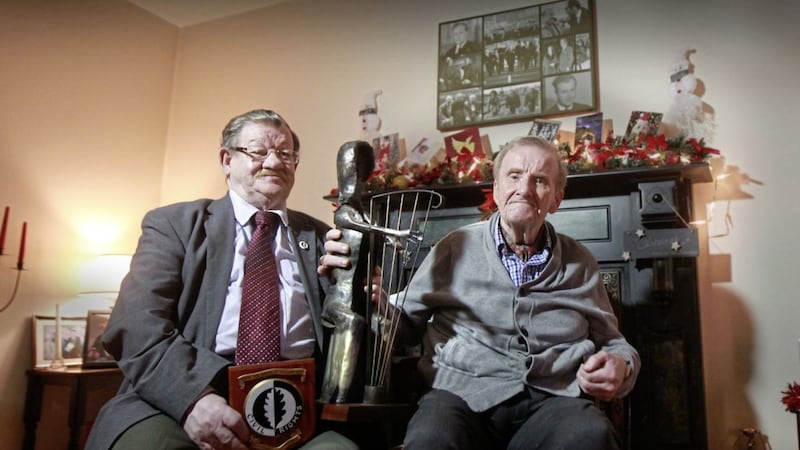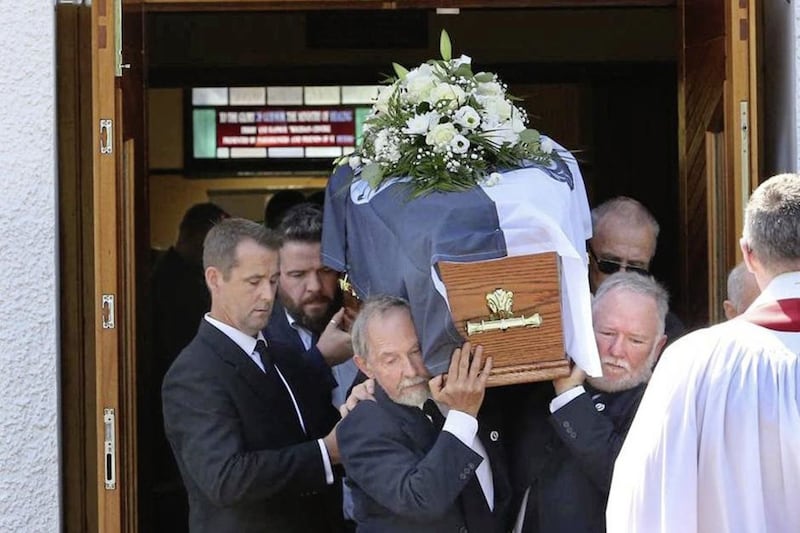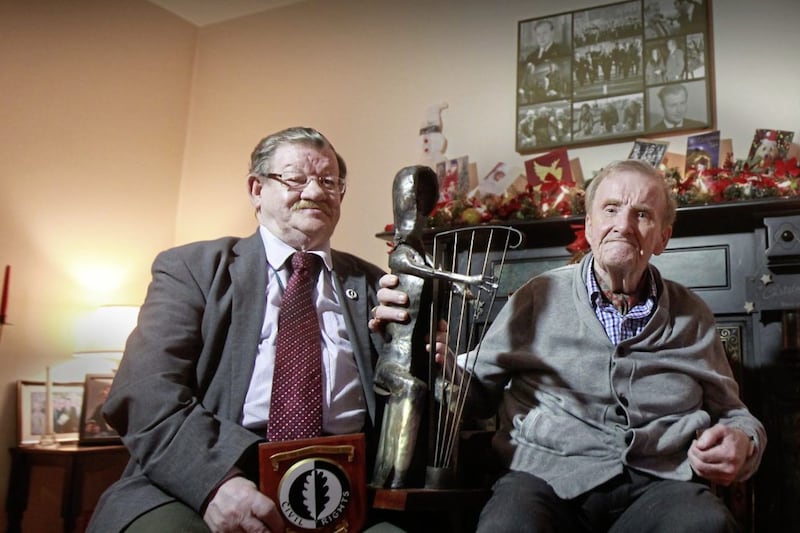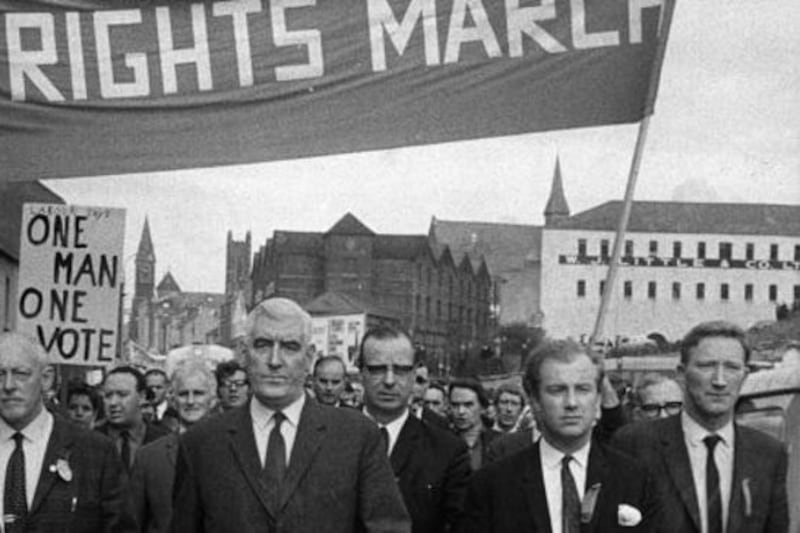TWO of the men who lit the touchpaper on Northern Ireland's civil rights campaign in 1968 have told how they have no regrets 50 years on.
This year marks the fiftieth anniversary of one of the most transformative years in Irish history.
The events of 1968 led to unprecedented change in the way Northern Ireland was governed, while many view a civil rights march in Derry that October as the day the Troubles started.
Two of the main civil rights leaders of the time, Fionnbarra O Dochartaigh and Ivan Cooper, believe they had no choice but to take a stand against anti-Catholic and anti-nationalist discrimination of the unionist state.
From a republican family, Mr O Dochartaigh’s motivation in joining the campaign was the internment of his older brother, Pat Leo, for speaking Irish some years earlier.
A housing activist, Mr O Dochartaigh was one of the key organisers of the October 5 march along with Eamon McCann, Eamon Melaugh and others.
“I was called in by the police and the then bishop, Neil Farren, in the days before it. Both were demanding that the march be called off. It was either the baton or the crozier,” he said.
As the march moved off, police attacked participants with batons and water cannon, hitting West Belfast MP Gerry Fitt.
Mr O Dochartaigh said he was euphoric because he realised things would never be the same again.
“A couple of days after, RUC District Inspector Ross McGimpsey was standing at the door to the barracks and I went over to him and said you did us a great favour; the whole world saw you in action.”
Mr O Dochartaigh said he was very proud of his role in bringing change to the north, and had always remained a rebel although many of his colleagues were gone.
“There are different rights to be fought for now but it’s for the younger generation; we pass on the baton to them. Lotta continua (the struggle goes on),” he said.
Ivan Cooper was from a completely different background. A member of the Church of Ireland, he worked as a shirt factory manager in 1967.
His involvement in the civil rights movement led to him being elected as a Stormont MP for mid Ulster, helping found the SDLP and serving as a Sunningdale coalition minister.
“At home in Killaloo, my parents were given grief for what I was doing. I remember at our church, people wouldn’t sit beside me; they moved away from me,” Mr Cooper said.
He said the October 5 march had to take place in Derry.
“Derry represented everything that was wrong and cancerous here with the gerrymander and discrimination,” he said.
An abiding memory is seeing a former neighbour, a policeman, hitting Mr Fitt on the head with a baton, but Mr Cooper said at the time he did not realise the impact the march would have.
Like Mr O Dochartaigh, the Derry man takes great pride in his involvement in the emerging civil rights campaign.
“I have regrets that the civil rights movement changed and that so few Protestants remained involved. But it was the only way to bring things to a head," he said.
“The whole movement was built on the premise that you had to stick at it to the bitter end. It was based on the peaceful protest movement."
Mr Cooper added that that while great gains were made, more work is needed to bring complete equality to the north.
------------
TIMELINE 1968
March 25 – Derry Housing Action Committee disrupts meeting of Londonderry Corporation in protest at lack of proper housing in city.
June 20 – Stormont Nationalist MP and future Fine Gael minister Austin Currie leads protest in Caledon. Protesters occupy vacant home allocated to 19-year-old single Protestant woman ahead of married Catholic families with children.
August 24 – Civil rights march takes place from Coalisland to Dungannon.
October 5 – Derry Housing Action Committee march, supported by Northern Ireland Civil Rights Association, from Duke Street to Guildhall Square is joined by three British Labour MPs, Republican Labour MP Gerry Fitt and several Stormont MPs. RTE coverage of the RUC attacking marchers, including the MPs, is beamed across the world.
October 9 – Student group People’s Democracy is formed.
November 2 – Thousands of people join 15 members of Derry Citizens Action Committee as they complete the banned October 5 civil rights march.
November 22 – NI prime minister Terence O’Neill announces reforms including disbandment of Londonderry Corporation, change in housing allocations, planned abolition of Special Powers’ Act and change to voting system.
December 9 – Terence O’Neill makes “Ulster stands at the crossroads" speech.
December 20 – People’s Democracy announce plans for protest march from Belfast to Derry, through Burntollet.






